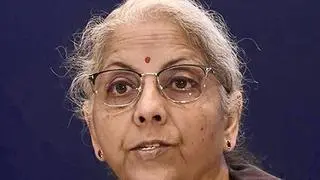India may have to accept immediate elimination of import duties on more than one-fourth of traded items once the proposed Regional Comprehensive Economic Partnership (RCEP) being negotiated between 16 countries, including the 10-member ASEAN and China gets implemented. The rest of the tariff cuts would then be implemented in phases, an official close to the negotiations has said.
Commerce & Industry Minister Piyush Goyal, who is in Bangkok to attend the on-going RCEP Trade Ministers’ meeting and the East Asia Economic Ministers’ Summit, is simultaneously engaged in difficult bilateral negotiations with partner countries to protect sensitive sectors from indiscriminate opening up.
RCEP members, which include the 10-country ASEAN, China, India, Japan, South Korea, Australia and New Zealad, are trying to ensure that talks on the proposed free trade regional pact gets concluded by November when leaders meet for the ASEAN Summit.
“There is a demand from RCEP members, especially China, that tariffs on a substantial number of items be eliminated or slashed right at the time of implementation of the pact. There is a possibility that India may have to agree to immediate tariff reduction for 28 per cent items, if not more, although efforts are on to bring it down as much as possible,” the official told BusinessLine .
New Delhi, till now, has been stepping cautiously in the negotiations as demands are being made by other members for elimination of tariffs on over 90 per cent of traded goods and an investment agreement favouring investors at the cost of the government. Moreover, its demand of improved offers in services has not been accepted yet. Both the Indian industry and the agriculture sector have expressed deep concerns to the Commerce Minister over the proposed pact.
If the number of tariffs to be initially slashed remains high, the Indian industry will face immediate heat not only from China but also from the ASEAN, Japan and South Korea with which it already has bilateral free trade agreements (FTAs).
“The FTAs that India signed with the ASEAN, Japan and South Korea have provisions of tariff elimination on 75-80 per cent items. Since these pacts are on the verge of full implementation, the countries would want India to take on elimination of duties on items that were left out of these bilateral agreements. So, items that were protected against tariff cuts in the initial agreements may see tariff elimination right at the beginning of implementation of RCEP,” the official said.
Dual task
Therefore, India has the dual task of not only protecting as many items possible from zero-tariff commitments but also trying to back-load the implementation process as much as possible.
India is likely to extend the best offer of tariff reduction and implementation to the ASEAN, South Korea and Japan. Its offers have been relatively conservative for China, Australia and New Zealand, with which it does not have any existing FTAs, but these members are not willing to accept too large a deviation, the official said.
“With China, the attempt is to limit elimination of tariffs up to about 70 per cent of traded items which is to be spread over thirty years. In the on-going bilateral discussions, New Delhi is trying to convince Beijing that its industry will accept an RCEP agreement only if its concerns are protected,” the official said.
Once implemented, the RCEP will be the largest free trading bloc accounting for 45 per cent of the world’s population, about a third of the global GDP and 40 per cent of global trade.








Comments
Comments have to be in English, and in full sentences. They cannot be abusive or personal. Please abide by our community guidelines for posting your comments.
We have migrated to a new commenting platform. If you are already a registered user of TheHindu Businessline and logged in, you may continue to engage with our articles. If you do not have an account please register and login to post comments. Users can access their older comments by logging into their accounts on Vuukle.